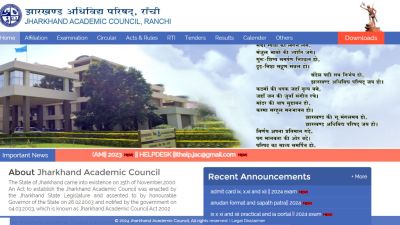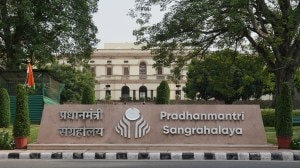- India
- International
This election, we must reject the onslaughts on freedom
While navigating our politics in these troubled times, we cannot forget the lesson of history that the majority vote does not guarantee freedom unless the majority stands up for freedom.
 An electoral official demonstrates the functioning of an Electronic Voting Machine (EVM) and Voter-Verifiable Paper Audit Trail (VVPAT) in Daryaganj, Delhi, on Tuesday. Abhinav Saha
An electoral official demonstrates the functioning of an Electronic Voting Machine (EVM) and Voter-Verifiable Paper Audit Trail (VVPAT) in Daryaganj, Delhi, on Tuesday. Abhinav Saha
The electoral process for the constitution of the 17th Lok Sabha has been set in motion by the Election Commission’s announcement of the poll schedule. By all accounts, this will be a watershed election given the context, challenges and the choices that are to be made. The electorate will choose between the government’s claims of performance, promises for a better future and the Opposition’s interrogation of governance in the last five years, besides their projection of a dim future for the country under the BJP dispensation. Pressing issues such as agrarian distress, rising unemployment, economic and social inequities, flawed policies and faltering economic growth will be at the centre of the Opposition’s campaign as indicated in the Ahmedabad resolution of the Congress working committee.
This election is certainly more than the sum total of these issues. It is about the future and quality of our democracy — whether our democratic engagement will remain discursive, inclusive and responsive to resist the “stampede of the masses” and a free run on the foundational principles of the republic. This election is about political morality in an age of extremes defined by coerced allegiance, contrived consent, and a nationalism which silences and suppresses. It is about the debilitating condition of democratic institutions, stifling of free thought and imagination, the egregious violation of religious rights, assaults on human dignity, enforced uniformity in a pluralist society, and, about a “narrowing circle of human empathy” exemplified in the continuing marginalisation of the vulnerable. It is about the state’s indifference to human misery and its oppressive apparatuses, about the disintegration of established patterns of human relationships and hate crimes in which blaming the victim is the new normal: These disquieting phenomena decisively point that our politics is moving towards the extremes.
But, this election is also an opportunity to reclaim the nation’s moral centre and to factor in the above challenges in the framework of an alternative narrative. In this intensely contested election, the core issues run the risk of being subsumed in rancorous political discourse — making us unable to anchor any political dialogue in civility. Electoral success will ensure a critical return to the path of moderation to rescue our faltering democracy. The imperative of embracing the middle ground through a politics of adjustment and rational engagement is self-evident. The Buddha’s middle path and Aristotle’s Nicomachean Ethics have extolled the virtues of avoiding “excess and defect”. Modern institutional dimensions of moderation were introduced to us by constitutionalists who, inspired by Montesquieu et al, rejected concentration of power in a single authority, and reinforced the logic of an equilibrium of power based upon its dispersal. Yet, the obvious virtues of “the intermediate” to which human beings accommodate themselves better than to extremes remains “….the most difficult lesson of wisdom..”(Tacitus). Hopefully, leadership across the political spectrum will recognise the need to rest Indian democracy on the edifice of moderation, lest it is reduced to a mobocracy by the demagogues. We must also accept that for democracy to yield power that is benign, we need to civilise ourselves in its use so that every powerful figure does not become, “…a ravenous beast of prey.”
The battle of the ballot this time will also be fought in the shadow of armed hostilities with Pakistan. In a charged political atmosphere, it is impossible to deny the influence of military glory on the emotions of the nation — this will undoubtedly challenge the wisdom of our people. But an election such as this cannot just be a moment to look for “viscerally satisfying solutions”. It must serve instead, as an opportunity to invigorate our democracy: This is our moment to demonstrate that the world’s largest democracy can “…rise above the crowd” and can resist the seduction of a muscular state in which narrow ideas of nationalism are used as an opiate. Together, we must reject the onslaughts on freedom and uncritical deference to authority.
A nation born to freedom must forever remind itself that the liberties of its citizens are secure in their own wisdom. That the struggle for freedom is a permanent revolution through which the notions of human dignity are constantly revisited.

Those on the side of freedom, therefore, ought to speak aloud and together. It would be a colossal tragedy if the parties that stand for freedom — from oppression, exploitation and fear — were to baulk at projecting this election as another struggle for freedom, lest their campaign is trounced at the altar of a perverse idea of nationalism. Only through an unrelenting struggle for the vindication of this nation’s values can political parties redeem their waning credibility as upholders of the people’s priorities.
Rahul Gandhi’s statement in Chennai (March 13) regarding the assault on democratic institutions and the need to remove a feeling of pervasive fear in the country is reassuring given the context. All individuals and authority figures supporting an open society are obliged to unite because “…the extensiveness of the folded fan draws breath and flourishes only in spreading.” (Walter Benjamin). While navigating our politics in these troubled times, we cannot forget the lesson of history that the majority vote does not guarantee freedom unless the majority stands up for freedom. For this to happen the election must be fought in defence of an idea of India that celebrates freedom — an idea which is under siege.
This article first appeared in the print edition on March 28, 2019 under the title ‘A fight for freedom’. The writer is a former Union Minister of law and justice.
EXPRESS OPINION
More Explained
Apr 19: Latest News
- 01
- 02
- 03
- 04
- 05









































